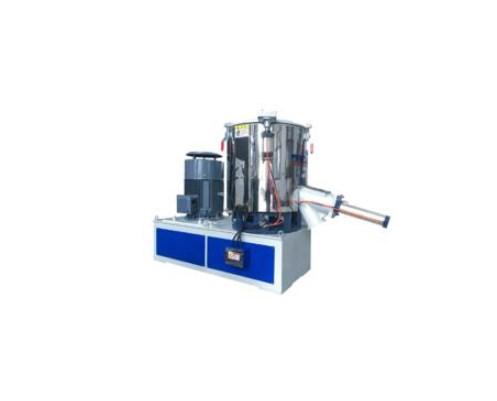In the world of material science and engineering, the Benchtop Extruder has become an indispensable tool for researchers, educators, and small-scale manufacturers. This compact and versatile piece of equipment is designed to provide precise control over the extrusion process, allowing for the creation of a wide variety of shapes and forms from various materials. The Benchtop Extruder's compact size and ease of use make it an ideal choice for laboratories and educational institutions where space is at a premium and budgets are tight.
The Benchtop Extruder's design is centered around simplicity and functionality. It is typically composed of a motor, a gearbox, a heating system, and a die or nozzle through which the material is extruded. The motor provides the necessary torque to drive the extrusion process, while the gearbox allows for precise control over the speed and force applied. The heating system ensures that the material is at the optimal temperature for extrusion, preventing it from becoming too brittle or too fluid. The die or nozzle is the final component that shapes the extruded material, and it can be easily changed to produce different shapes and sizes.
One of the key advantages of the Benchtop Extruder is its ability to handle a wide range of materials. From plastics and polymers to metals and ceramics, this versatile machine can process a variety of substances. This makes it an invaluable tool for researchers who need to test the extrusion properties of different materials or for educators who want to demonstrate the principles of extrusion to their students.
The Benchtop Extruder's small size also means that it can be easily integrated into existing laboratory setups. It can be placed on a benchtop or a work surface, freeing up valuable floor space in the lab. This makes it an attractive option for facilities with limited space, such as small research labs or educational institutions.
In terms of operation, the Benchtop Extruder is designed to be user-friendly. It typically features a control panel that allows for easy adjustment of the extrusion parameters, such as speed, temperature, and pressure. This makes it easy for users to fine-tune the extrusion process to achieve the desired results. Additionally, many Benchtop Extruders come with built-in safety features, such as emergency stop buttons and temperature control systems, to ensure that the extrusion process is safe and reliable.
Maintenance of the Benchtop Extruder is also relatively straightforward. Regular cleaning and inspection of the machine's components, such as the die and the heating system, are essential to ensure optimal performance. However, the compact design of the Benchtop Extruder makes it easy to disassemble and clean, reducing the time and effort required for maintenance.
In conclusion, the Benchtop Extruder is a powerful tool for material processing in a variety of settings. Its compact size, versatility, and ease of use make it an ideal choice for laboratories, educational institutions, and small-scale manufacturers. As technology continues to advance, the Benchtop Extruder is likely to play an increasingly important role in the development of new materials and the advancement of material science research. With its ability to handle a wide range of materials and its user-friendly design, the Benchtop Extruder is a valuable asset in any setting where precision and control are paramount.

